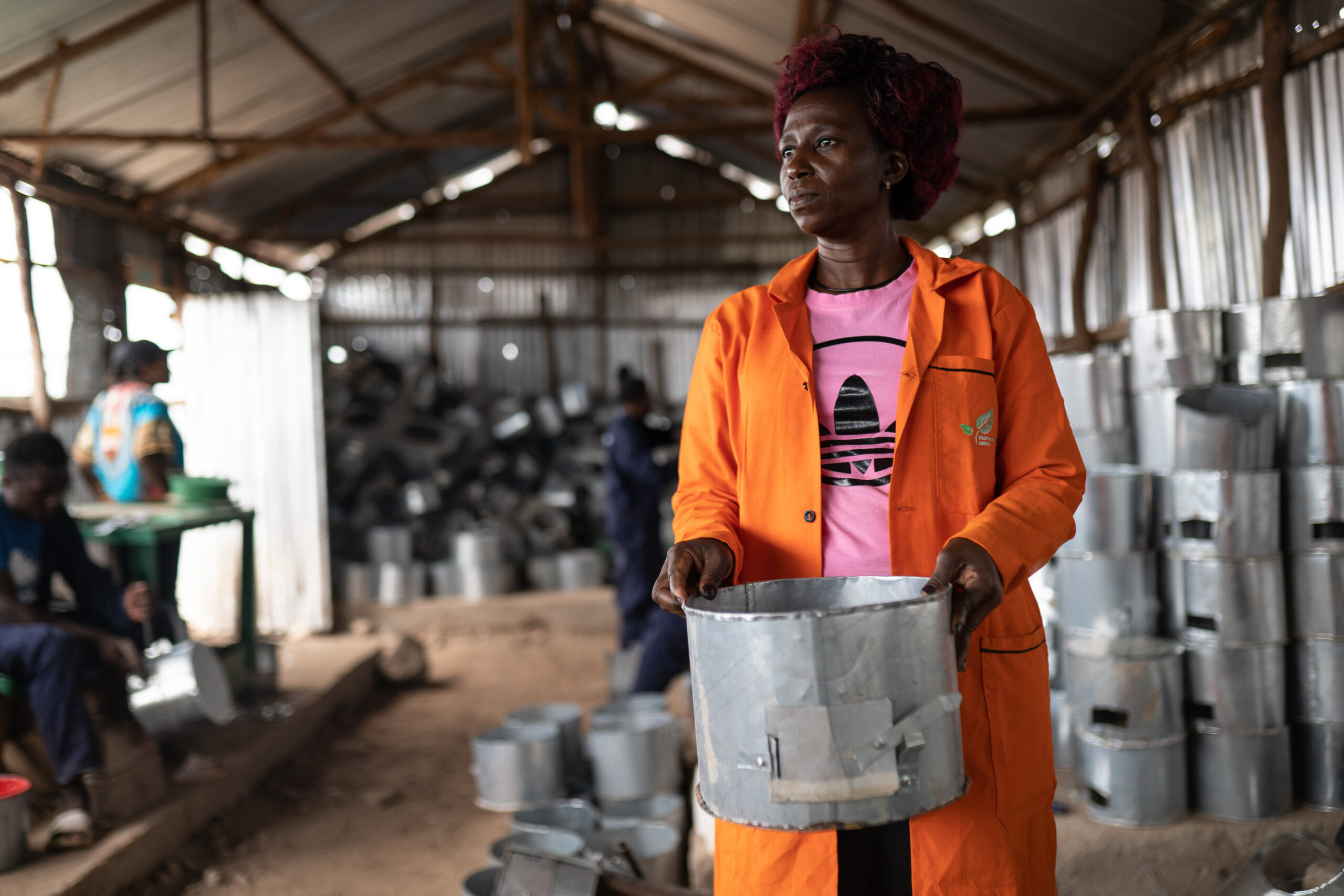Image: Lucy Wairimu manufactures climate-friendly cookstoves in the Kakuma Refugee Camp, Kenya
Connecting displaced people with clean, affordable energy is an urgent humanitarian challenge.
In refugee camps, the share of residents without electricity and safe cooking methods can be as high as 90 per cent.
Powering up communities supports displaced people to stay safe and healthy, earn a living, learn, and stay in touch with loved ones.
But there are many barriers to progress including a lack of public and private investment, and officials’ reluctance to sanction infrastructure that ‘settles’ displaced people.
Every day across the Global South businesses and non-profits are using mini-grids and rooftop solar to bring clean energy to more and more communities while safer cookstoves tackle deforestation and air pollution.
But too often, barriers stop the spread of these services and products to displaced people.
We risk a widening energy poverty gap, further adding to the challenges faced by some of the world’s most marginalised communities. It’s time to ask how can this gap be closed.
A key step is supporting and replicating homegrown energy initiatives, and the entrepreneurs and community organisations driving ground-up change.
They know the solutions needed, and the funding and business models that can make them a reality.
Backing this work is much-needed action towards a more inclusive, participatory, sustainable humanitarian system.
Whether powering clinics, streetlights, water pumps or market stalls, energy is at the centre of a strong community.
Ensuring that energy systems are locally owned or run hand-in-hand with local people is a foundation for resilience.
And, crucially, it helps bring dignity back to communities, something many other interventions cannot manage.
Pioneering innovation shows what works
Examples of truly homegrown innovation include USAFI Green – a refugee-led enterprise in Kenya’s Kakuma Refugee Camp, employing local people to manufacture cookstoves (2,000 a month) and clean-burning briquettes to fuel them.
Ninety five per cent of its staff are under 35, meaning a big impact in tackling youth unemployment. Contracts to supply briquettes to the FAO have supported USAFI Green’s growth, underlining the importance of partnerships between local and global organisations.
In East Africa, Save the Environment Ethiopia has launched twelve clean energy co-operatives in partnership with UNHCR, local authorities and funder IKEA Foundation.
Local people are given training in engineering and business skills. This supports a range of livelihoods, from farming to gum and incense making.
Supporting entrepreneurship is particularly important because of the barriers to work facing refugees and displaced people.
That’s why Nigeria’s Care for Social Welfare International is helping displaced people make the most of 350 hectares of land allocated to them in Cross River State.
At the heart of the scheme is a solar-powered borehole shared by 1,200 farmers, which irrigates fields and has allowed 50 households to take up fish pond farming.
CASWI’s support goes further, helping farmers process and sell their produce – a holistic approach that maximises the scheme’s impact.
Meanwhile, Cameroon’s Hope for a Better Future is empowering women from the internally displaced and host communities to run ‘solar solution centres in the country’s Northwest Region.
The NGO’s start-up kits, accompanied by technical and business training, help the women supply and repair solar lamps and clean cookstoves, and process farm goods using a solar dryer. It also promotes women’s products by organising football matches and other community events.
All four organisations are finalists in the Ashden Award for Powering Refugees and Displaced People.
Foundations for success
These varied initiatives from across Africa show how communities can drive forward energy access. But international organisations have a vital role to play.
Their involvement can catalyse and de-risk markets in humanitarian settings, creating an environment that allows homegrown initiatives to thrive.
They can create an impact as partners, funders or customers of grassroots efforts.
This includes championing the success and insights of communities and advocating for them.
Steps to fight official restrictions on the rights to work and land, and the general social marginalisation of displaced people, will support important structural change.
For millions of people, clean energy can be a foundation for a better life. But it can also be a foundation for new ways of thinking and acting in the humanitarian system, sparking progress around the world.
This piece first appeared in The Star.

